Q&A
Recent articles
How eight initiatives are tackling neuroscience’s gender gap
In honor of today’s International Day of Women and Girls in Science, The Transmitter spoke with some of the women working to bolster their ranks in the field through storytelling podcasts, speaker repositories, social media networks and other community-based advocacy projects.
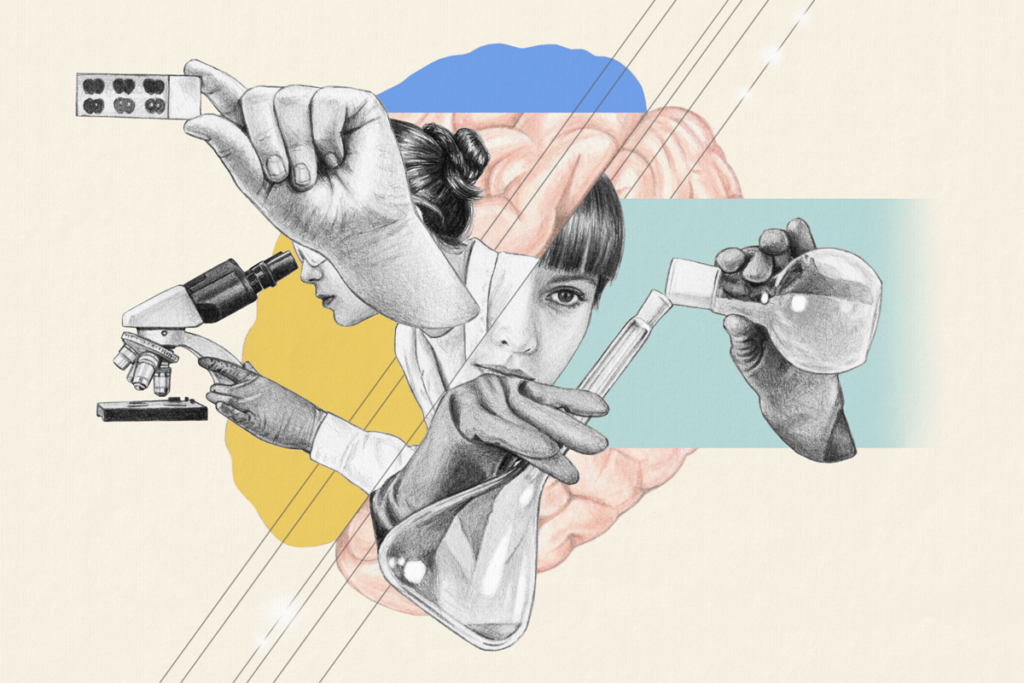
How eight initiatives are tackling neuroscience’s gender gap
In honor of today’s International Day of Women and Girls in Science, The Transmitter spoke with some of the women working to bolster their ranks in the field through storytelling podcasts, speaker repositories, social media networks and other community-based advocacy projects.
‘Digital humans’ in a virtual world
By combining large language models with modular cognitive control architecture, Robert Yang and his collaborators have built agents that are capable of grounded reasoning at a linguistic level. Striking collective behaviors have emerged.
‘Digital humans’ in a virtual world
By combining large language models with modular cognitive control architecture, Robert Yang and his collaborators have built agents that are capable of grounded reasoning at a linguistic level. Striking collective behaviors have emerged.
Open-access neuroscience comes to the classroom: Q&A with Liz Kirby
Neuroscience textbooks can be prohibitively expensive for some undergraduate students. A new open-access alternative seeks to change that.
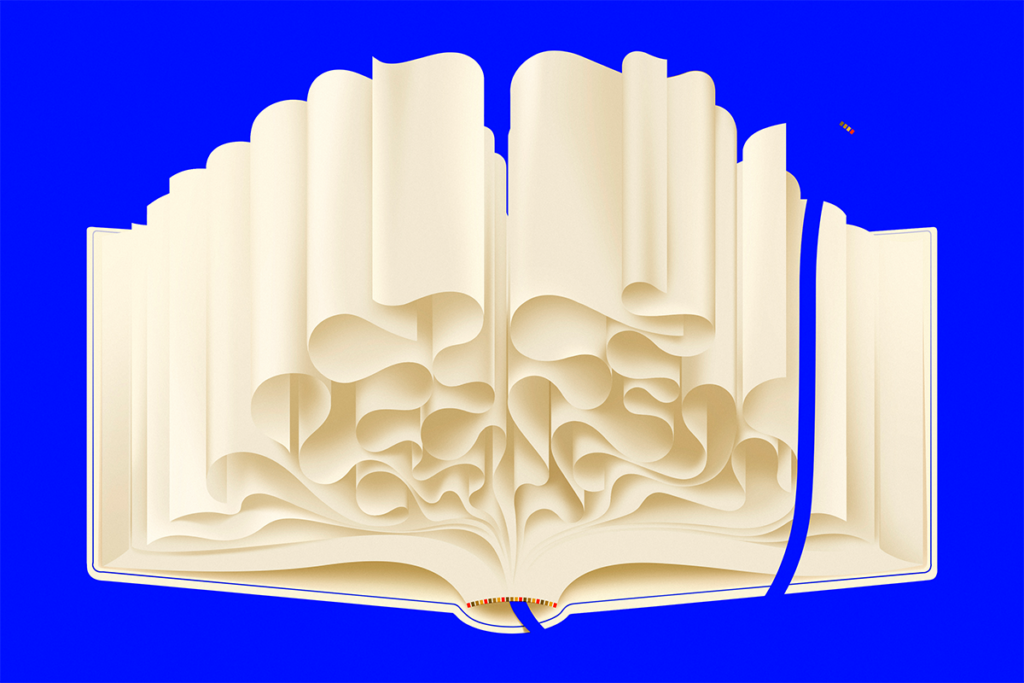
Open-access neuroscience comes to the classroom: Q&A with Liz Kirby
Neuroscience textbooks can be prohibitively expensive for some undergraduate students. A new open-access alternative seeks to change that.
‘Sacred objects’ display discredits Golgi and Ramón y Cajal’s rivalry: Q&A with curator Daniel Colón Ramos
A new exhibit that opened last week shows drawings from the influential duo side by side for the first time and recasts them as collaborators. It also reveals lessons for modern scholars.
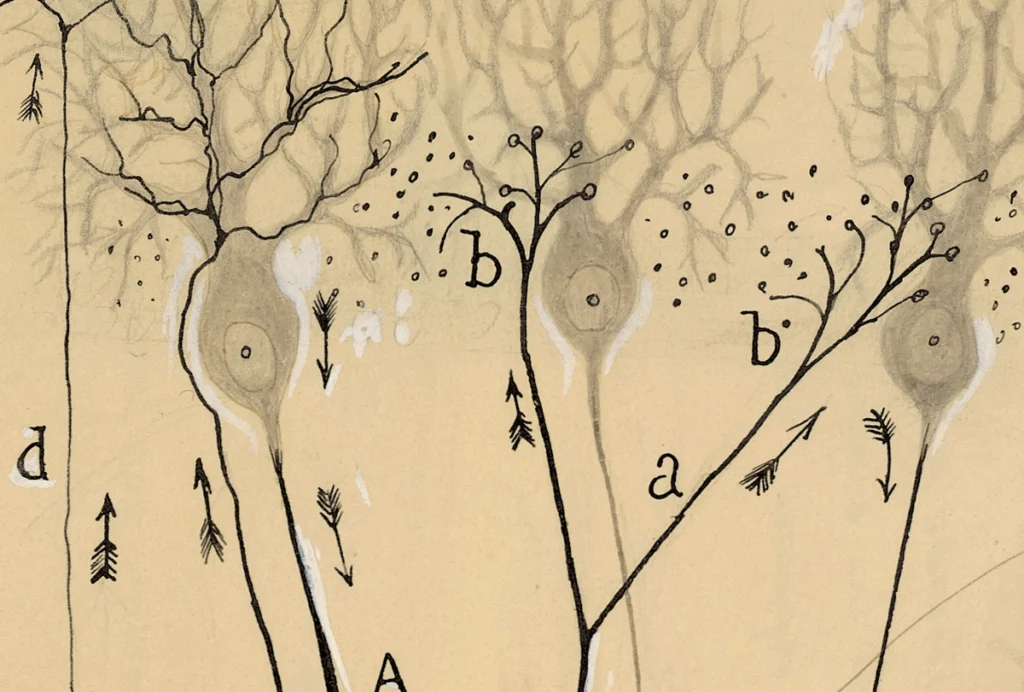
‘Sacred objects’ display discredits Golgi and Ramón y Cajal’s rivalry: Q&A with curator Daniel Colón Ramos
A new exhibit that opened last week shows drawings from the influential duo side by side for the first time and recasts them as collaborators. It also reveals lessons for modern scholars.
The case for redefining ‘theory of mind’: Q&A with François Quesque
In a new commentary, Quesque and 44 experts in neuroscience and psychology propose a standardized lexicon for research on the attribution of mental states.
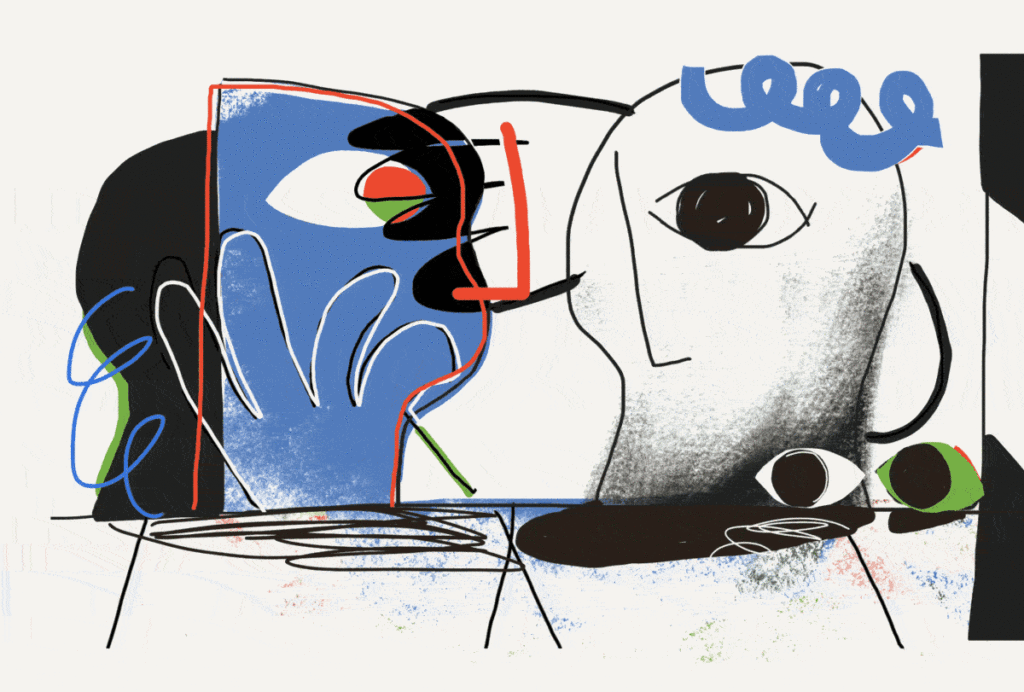
The case for redefining ‘theory of mind’: Q&A with François Quesque
In a new commentary, Quesque and 44 experts in neuroscience and psychology propose a standardized lexicon for research on the attribution of mental states.
A genetics-first clinic for catching developmental conditions early: Q&A with Jacob Vorstman
A new clinic is assessing children who have a genetic predisposition for autism and other neurodevelopmental conditions—sometimes before traits appear.
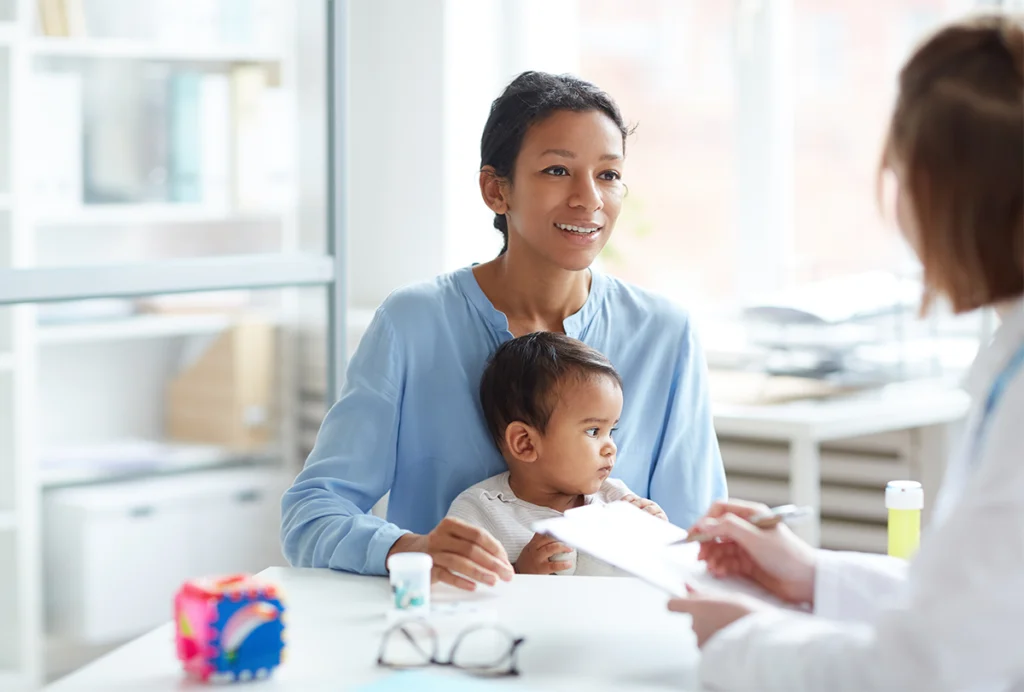
A genetics-first clinic for catching developmental conditions early: Q&A with Jacob Vorstman
A new clinic is assessing children who have a genetic predisposition for autism and other neurodevelopmental conditions—sometimes before traits appear.
Accounting for a mosaic of sex differences: Q&A with Nicola Grissom
Breaking the binary view of sex traits can enable researchers to represent the broader complexity of behavior and cognition.
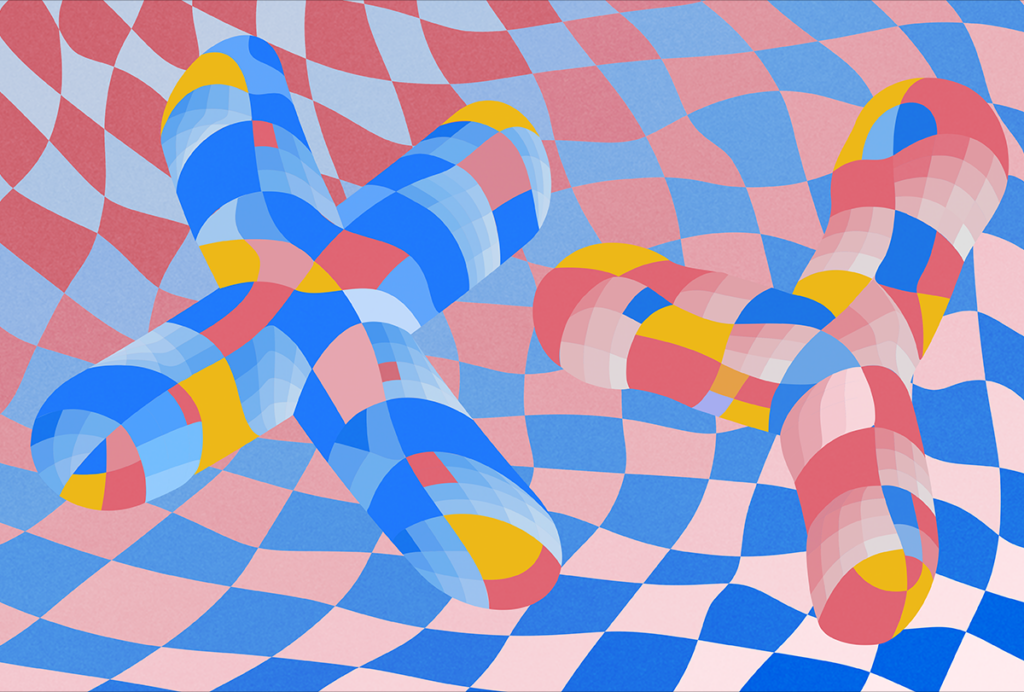
Accounting for a mosaic of sex differences: Q&A with Nicola Grissom
Breaking the binary view of sex traits can enable researchers to represent the broader complexity of behavior and cognition.
Mind control in zombie flies: Q&A with Carolyn Elya
A parasitic fungus compels its insect host to behave in strange ways by hijacking secretory neurons and circadian pathways.
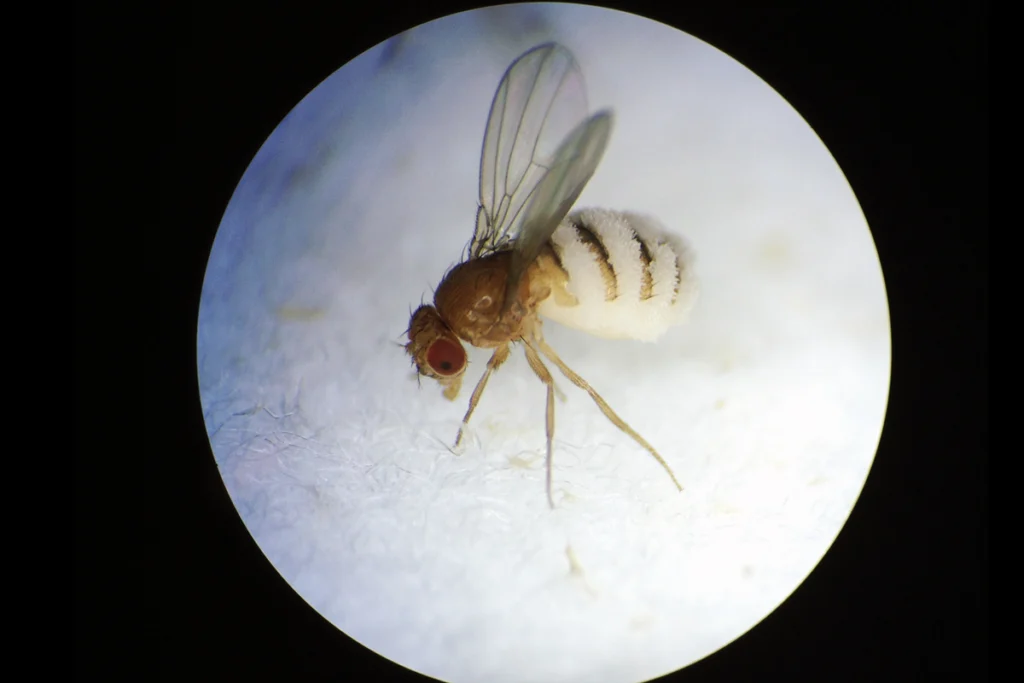
Mind control in zombie flies: Q&A with Carolyn Elya
A parasitic fungus compels its insect host to behave in strange ways by hijacking secretory neurons and circadian pathways.
Pinning down ‘profound autism’ for reliable research: Q&A with Matthew Siegel
A clear and actionable definition for the term could enhance research and improve care, Matthew Siegel says.

Pinning down ‘profound autism’ for reliable research: Q&A with Matthew Siegel
A clear and actionable definition for the term could enhance research and improve care, Matthew Siegel says.
What happens when a histopathologist teams up with computational modelers?
Answers emerge in my chat with Nicola Palomero-Gallagher, a rare example of someone who connects the brain’s microscopic constituents and macroscopic features.
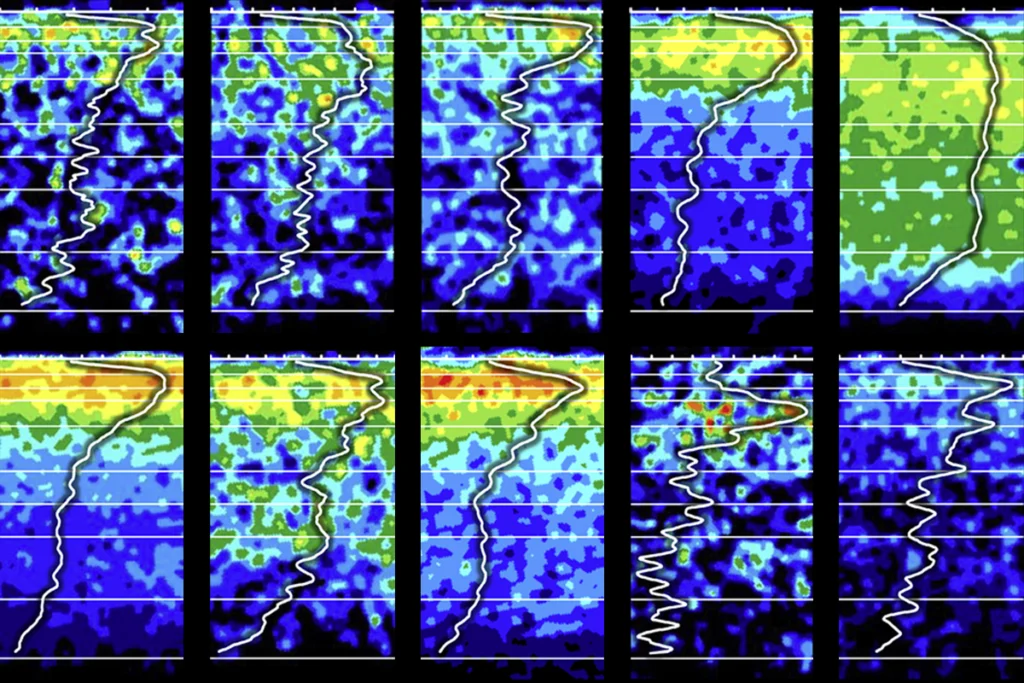
What happens when a histopathologist teams up with computational modelers?
Answers emerge in my chat with Nicola Palomero-Gallagher, a rare example of someone who connects the brain’s microscopic constituents and macroscopic features.
Explore more from The Transmitter
Organoids and assembloids offer a new window into human brain
These sophisticated 3D cultures reveal previously inaccessible stages of human brain development and enable the systematic study of disease genes.

Organoids and assembloids offer a new window into human brain
These sophisticated 3D cultures reveal previously inaccessible stages of human brain development and enable the systematic study of disease genes.
Who funds your basic neuroscience research? Help The Transmitter compile a list of funding sources
We want to hear from you about the sources of funding for your research.
Who funds your basic neuroscience research? Help The Transmitter compile a list of funding sources
We want to hear from you about the sources of funding for your research.
The future of neuroscience research at U.S. minority-serving institutions is in danger
Cuts to federally funded programs present an existential crisis for the University of Puerto Rico’s rich neuroscience community and for research at minority-serving institutions everywhere.

The future of neuroscience research at U.S. minority-serving institutions is in danger
Cuts to federally funded programs present an existential crisis for the University of Puerto Rico’s rich neuroscience community and for research at minority-serving institutions everywhere.